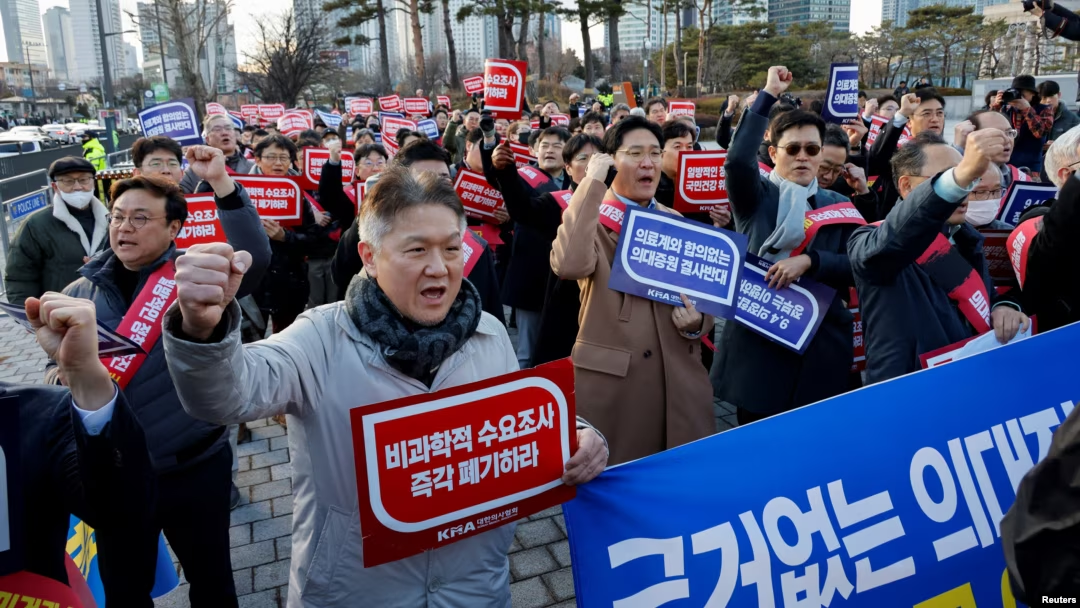As South Korea grapples with a nationwide strike of trainee doctors entering its third month, hospitals in smaller cities are facing a critical shortage of physicians. This issue has been exacerbated by plans to address the shortage by increasing medical school admissions.
While Seoul boasts top-level hospitals, smaller cities are experiencing a dearth of doctors, a trend experts fear will worsen as the population ages rapidly and birth rates plummet to the lowest in the world.
Director Cho Seung-yeon of the Incheon Medical Center in the port city of Incheon highlighted the severity of the situation, citing the closure of their artificial kidney room for almost two years due to the inability to find a doctor. Cho emphasized that this shortage is not unique to their hospital but is a national phenomenon.
The government’s proposal to increase medical school students faces opposition from trainee doctors and some medical groups who doubt its efficacy in improving poor working conditions. South Korea currently has one of the lowest doctor-to-population ratios among developed countries, according to the OECD.
While some, like patient Yoo Byung-seon, hope for an increase in the number of doctors to accommodate the needs of an ageing society, hospitals like Incheon Medical Center are struggling to find staff. The hospital’s cardiology department has resorted to using roving doctors from a nearby university hospital due to the shortage.
Amidst the strike, the Korea Medical Association accused Cho and another staffer of using unlicensed personnel for medical procedures, an allegation Cho denies.
The striking medical interns and resident doctors demand better pay and working conditions before the addition of more physicians. While Cho acknowledges the need for policy changes to ensure new doctors work in underserved areas, he believes adding practitioners is a necessary first step.
Choi Hee-sun, president of the Korean Health and Medical Workers’ Union, highlights the plight of physician assistants, who often perform duties without the same protections as doctors. She criticizes both the government and striking doctors for the failure to engage in productive dialogue.
Outside the capital, medical outcomes vary widely, with smaller cities like Incheon facing higher rates of avoidable deaths compared to Seoul. Despite current satisfaction with the healthcare system, concerns persist about the future availability of doctors, echoing the sentiments of patient Yoon Geum-ja.



